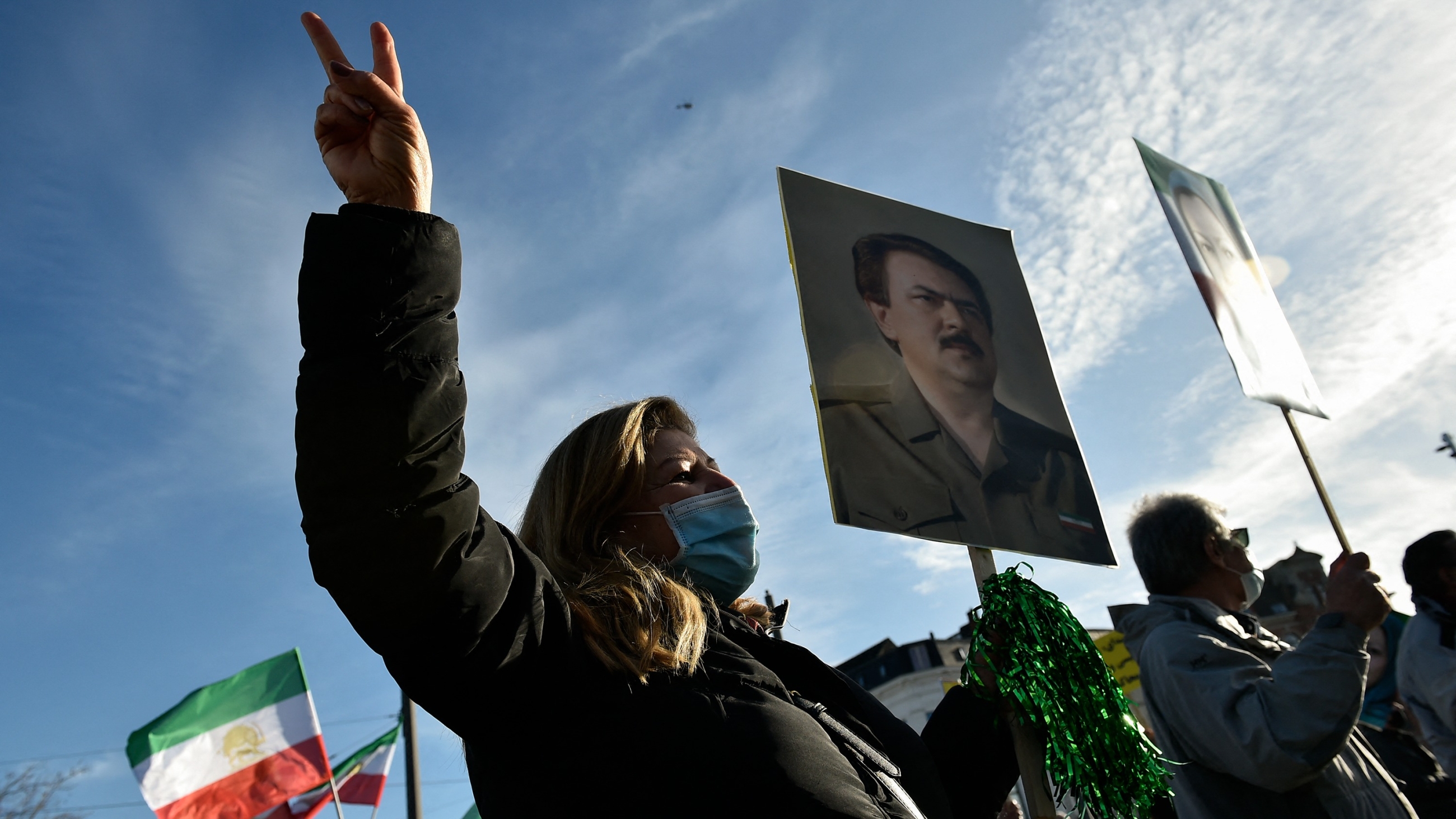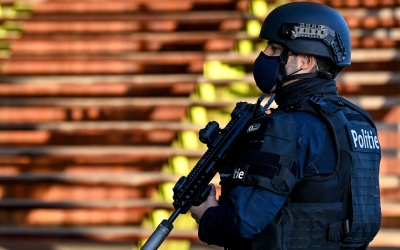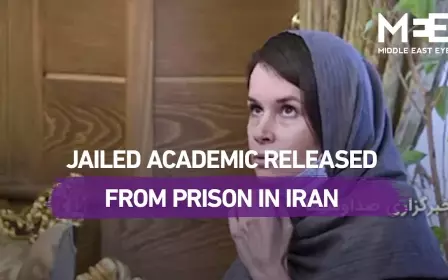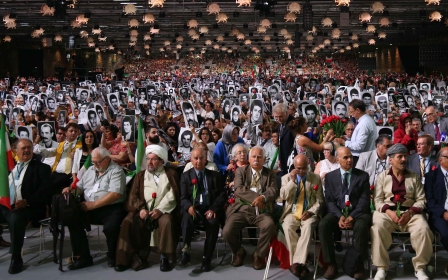Belgium votes in favour of prisoner swap treaty with Iran

Belgian lawmakers have ratified a controversial treaty that will allow prisoner exchanges with Iran, paving the way for the releasing - and possibly the pardoning - of an Iranian diplomat who was jailed last year over a foiled 2018 bomb plot in France.
Following a late debate on Wednesday, Belgium’s parliament backed the agreement with 79 members voting in favour and 41 against, and 11 MPs abstained from the vote.
The treaty had already won approval from a parliamentary commission on 6 July.
In 2020, Belgian prosecutors charged Iranian diplomat Assadolah Assadi and the three others with planning an attack in 2018 on a rally of the Paris-based National Council of Resistance of Iran (NCRI).
'Belgium is waving the white flag on terrorism. That’s the message from its government and parliament, after it passed a treaty with Iran'
- Masih Alinejad, Iranian journalist and activist
The proceedings marked the first time an EU country had put an Iranian official on trial for terrorism since Iran's 1979 revolution.
New MEE newsletter: Jerusalem Dispatch
Sign up to get the latest insights and analysis on Israel-Palestine, alongside Turkey Unpacked and other MEE newsletters
In 2021, Assadi was found guilty of attempted terrorism. Three of his accomplices, all dual Iranian-Belgians, were handed jail terms of between 15 and 18 years and stripped of their Belgian citizenship.
Prime Minister Alexander de Croo's government has argued that the treaty is the only way to free a Belgian already jailed in Iran.
It could also help Swedish-Iranian academic Ahmadreza Djalali, who has taught in Belgium and has been sentenced to death in Iran on charges of spying for Israeli intelligence.
Critics of the deal, both Belgians and members of an exiled Iranian opposition movement, accuse Belgium of backing down in the face of what is in effect hostage-taking by Tehran.
Olivier Vandecasteele, a 41-year-old aid worker, was detained in Tehran by Iranian authorities on 24 February, apparently without charge.
In a video message on 11 July, Vandecasteele's family urged authorities to "do everything" to secure his release, stressing his deteriorating physical and mental health after five months in jail.
While Prime Minister De Croo vowed last week that "Belgium does not abandon its citizens", the country's new foreign minister insisted that the government had done everything it could to demand the aid worker's release through diplomatic channels.
"We could raise our voices more, but we'd be screaming into the desert," said Hadja Lahbib, who was appointed to the position last week.
'Hostage Diplomacy'
The Belgian opposition alleges the agreement with Tehran was "tailor-made" to permit Assadi's release, and Iranian exiles have mounted street protests and a ferocious lobbying campaign.
The passing of the treaty shows that Belgium is “waving the white flag on terrorism”, tweeted Iranian journalist and activist, Masih Alinejad.
"With this law, Belgium and the rest of Europe, allow the ayatollahs to conduct acts of terror in Europe with little fear of punishment," Alinejad wrote.
Francois De Smet, the leader of the opposition party Defi, said that Belgium now “sends the message that its justice is for sale”.
Assadolah Assadi was the third counsellor at Iran's embassy in Vienna. French officials have said he was in charge of intelligence in southern Europe and was acting on orders from Tehran.
The 50-year-old was found guilty of orchestrating a terrorist project that was foiled at the last moment in June 2018, when Belgian officers arrested a Belgian-Iranian couple carrying explosives.
The pair were travelling to France to target the annual gathering near Paris of the National Council of Resistance of Iran (NCRI), a coalition of opponents of the Tehran regime.
The Antwerp court ruled that Assadi had masterminded this project on behalf of Iranian intelligence, under diplomatic cover as an envoy to Austria - and thus had no immunity in Belgium.
The bomb plot “was not a personal initiative by Assadi", Jaak Raes, head of Belgium’s state security service (VSSE), said in a letter to the prosecutor in February 2020.
“The attack plan was conceived in the name of Iran and under its leadership,” Raes added.
Tehran has repeatedly dismissed the charges, calling the attack allegations a "false flag" stunt by the NCRI, which it considers a terrorist group.
Earlier this month, presenting the treaty "on the transfer of sentenced persons" to MEPs, Justice Minister Vincent Van Quickenborne tried to decouple the text from the Assadi case, AFP reported.
But he also admitted that as soon as the "so-called diplomat" was arrested, Belgium's "interests" as well as its 200 nationals in Iran became targets of potential reprisals.
"From day one, we have felt pressure from Iran and the security situation of our interests has deteriorated systematically," Van Quickenborne said.
Middle East Eye delivers independent and unrivalled coverage and analysis of the Middle East, North Africa and beyond. To learn more about republishing this content and the associated fees, please fill out this form. More about MEE can be found here.





